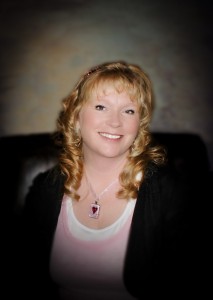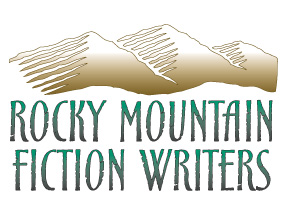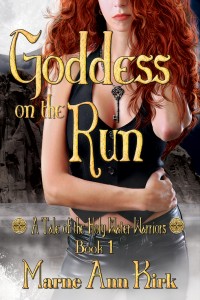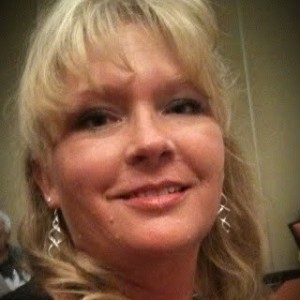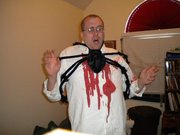 Ross Willard, a Colorado resident, has been writing speculative fiction in one form or another for as long as he can remember. A longtime member of the Penpointers critique group, Ross can often be found reading or writing at his local independent coffee shop, or working on his website, www.rosswriter.com.
Ross Willard, a Colorado resident, has been writing speculative fiction in one form or another for as long as he can remember. A longtime member of the Penpointers critique group, Ross can often be found reading or writing at his local independent coffee shop, or working on his website, www.rosswriter.com.
Ross Willard. I met Ross way back in 2009 at the Pikes Peak Writers Conference along with a ton of super cool people like Aaron Spriggs. Ross had just come out of a pitch session and he looked devastated. What happened? I’ll get there, I’ll get there.
I then saw Ross at the 2009 RMFW Gold Conference where he was a finalist for his novel, Sparrow and the Toad. It was a super hero novel like no other.
And I didn’t see Ross for a long time. I suffered for it because Ross is an amazing bloke. So when it came around that he was getting his first book published, I jumped at the chance to interview him. And so, here is the interview.
But first, a little about his debut novel, System Purge:
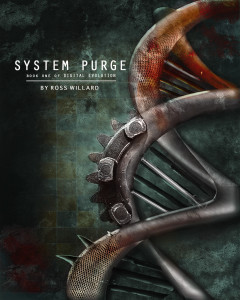 A 14-year-old prodigy with a mysterious past. A genetically-engineered soldier with a deadly present. A sentient machine fighting for his future. They come from different worlds, but they’ll have to trust each other if they want to survive.
A 14-year-old prodigy with a mysterious past. A genetically-engineered soldier with a deadly present. A sentient machine fighting for his future. They come from different worlds, but they’ll have to trust each other if they want to survive.
Aaron: Okay, Ross, I tried to throw out a hook in the first paragraph about your first pitch session, and here is where we fulfill the promise. Or should we wait? Let’s wait. I can feel the tension building. Okay, when was the first time you ever dreamed up a story? Give us a little pitchy poo.
Ross: Ah, my very first story! I remember it well. Okay, that’s a lie, I remember it vaguely, partly because it was a very, very long time ago, and partly because I try to block my memory of stories that bad. The first story I ever remember writing was about one of the characters from He-Man. I don’t remember what his name was, but he was the guy with wings. Anyway, long story short, it was a very short story, and while it had no character development, or arc, and was, I think, one paragraph long, it did one very important thing, it made me realize that the stories I loved so much on Saturday morning did not drift down from on high—they were created. And that people created them. That I could create them. I know that if I ever found that story that I scrawled in a notebook way back when I was . . . I don’t know, five? Four? Six? Whenever I would blush at just how horrible it is, but I’m glad I wrote it. It was the first step on the journey to becoming a writer.
Aaron: What was the first thing you ever queried to an agent or publisher? How was the experience?
Ross: Oh no! Dredging up that? It was terrible! Basically, it went like this: after years (and years) of wanting to be a writer, and scrawling down anything that popped into my head, I finally finished my first ‘novel.’ In retrospect, it was awful. I mean, really bad. But it was done, and I, after years and years of trying and trying to actually FINISH a story, was finally ‘ready’ to publish it. But how? I’d never finished anything before, so I hadn’t needed to figure out what to do. Not an insurmountable obstacle, after all, my parents had the internet, and everything is on the internet. So I got online and started plugging in various combinations of ‘book’ ‘finished’ and ‘published.’ It didn’t take long to strike gold! A publishing company! It took a bit of scrolling around and digging, but eventually I found their submission guidelines. Uh oh. They wanted stories that were at least seventy-thousand words long? Let’s check that . . . I’m only at forty-seven? Uh oh. I can’t possibly add thirteen thousand words to this story. Oh! I know! I’ll add a subplot that barely relates to the main storyline, that’ll work. (time passes) Okay, that’s done, now where do I send my manuscript . . . But wait! A query letter? What the hell is a query letter? I mean, I know what a query is, it’s a question. A question letter? I’d better look that up! Another internet search in another window brought me information about these mysterious beasts. Apparently, I was supposed to write them a letter asking if they wanted to read my book. But that didn’t make ANY sense. How would they know that they wanted to read my book from what I wrote in a letter? I’d spent so much time and energy on the book, how was I going to express all of that in a single page? Still, it was what they wanted. I did more research into these ‘query letter’ thingies, and realized I needed some kind of hook. Oh, but I knew that! They wanted to know why they should read my book, I should tell them what was wrong with other, really popular books, that way they’d know how good I was!
Allow me to sum up: it went poorly!
Aaron: You said you submitted something to a publisher and their turnaround was a year. Tell us that story.
Ross: No-no. I submitted to a publisher who CLAIMED their turnaround time was a year. The upside was that they just want you to send them your entire book, which is already done. No query letters, no synopses (yes, that is the proper plural for synopsis), just the book itself! If you’ve ever had to wait four months for an answer to a query letter, then four more months for the reply to the partial and synopsis, only to get rejected anyway, then you know that waiting a year for a simple ‘no’ isn’t a terrible thing. The problem was, it didn’t take a year. I sent in a full manuscript and, after about thirteen months received a rejection from them . . . but not for the book I’d sent in a year before. I received a rejection for a manuscript I’d sent in so long before that, that I’d forgotten I sent it in at all! The manuscript I was waiting for took a full TWO years to get rejected.

Aaron: Okay, I think we’ve left everyone in suspense long enough. What happened at your first pitch session?
Ross: Exactly what I expected. It was a disaster. First, you have to realize that I have an anxiety disorder, social anxiety. Second, I was unmedicated at the time. I talked to people about what to expect, practiced my pitch, and proceeded upstairs where a very nice, very pleasant woman listened to my mumbly, awkward elevator pitch, asked a few questions, and basically told me that it didn’t sound like something she’d be interested in. I think she phrased it in a way that included letting me send her a partial if I wanted, but basically it was a ‘no thank you.’ But that wasn’t why I was so upset. I was upset because all of the planning and practice meant absolutely nothing. I’d gone in, started talking and suddenly all of my ideas sounded stupid. Everything I said was more idiotic than what I’d said before, and I felt like a fool. I knew that becoming an author was what I wanted to do with my life, it was more than a career for me, it was a calling, but I couldn’t talk about what I’d written without feeling like a fool. And when I feel foolish, I get upset. Okay, fine, I cried, I can admit it!
Aaron: So after all the trauma, where do you think you’ve grown the most in your writing life over the years?
Ross: Well, having joined a writers’ group when I moved to Colorado, my writing has grown a great deal over the past few years, but if I had to pick one area . . . I’d have to say focus. Early on in my writing I had a tendency to meander in the storytelling. I was a fly-by-the-seat-of-your-pants writer, to such a degree that I often didn’t know where my story would be ending. I had sub-plots that didn’t go anywhere, backstories that didn’t matter, but that I had to share . . . these days I’ve cut that to a minimum, and, while not every single word on the page is absolutely crucial to the plot, the story continues forward, instead of taking a brief tangent to Australia, every couple of pages.
Aaron: When we talked, you said self-publishing was the next logical step. What did you mean by that?
Ross: For most of my life, I held self-publishing in low regard. After all, anyone can self-publish, there are no gatekeepers, so there’s no guarantee of quality when it comes to the writing. But over the years I’ve become bewildered at the state of the publishing industry as well. I’ve read amazing books that suffered rejection after rejection, and I’ve picked up books in bookstores, published by major publishers, that were, in my opinion, a waste of paper. Publishers seem to be more interested in picking up books that fit a certain type, than books that measure up to a certain quality. The problems with traditional publishers combined with advances in technology (thus lowering of prices and raising of quality in self-published books) have started a shift in the paradigm of publishing. I don’t know where that shift is going, but I do know this: in the end, books are judged by the readers. But to be judged, they have to be available. In order to find out where my writing stands, I need it to be judged by readers, and instead of submitting the same manuscript time after time after time to publisher after publisher after publisher, I’ve decided to present my work directly to the people whose opinions actually matter. Maybe nobody will like it. Maybe everyone will love it. I can wish and hope and dream all day, or I can take a step forward, and find out.
Aaron: So the book you just published, System Purge, what drew you to write it?
Ross: I wrote System Purge several years ago (the first couple of drafts). Specifically, I wrote it around the time that I moved, for the first time, out of the town, and the state, where my parents lived. I’d lived away from home before, of course, but never farther than a quick drive away. I was in my late twenties, but it was still a sort of coming of age experience for me. A second coming of age. The themes in the book revolve largely around self-reliance, figuring out who you are apart from your parents, and connecting with people who seem, in many ways, to be quite different from you.
Aaron: I was reading back through some old interviews, and I asked Kate Evangelista this question. It’s the best question ever! If your novel System Purge was turned into a religion, what would be the tenets of the religion? And could I join?
Ross: That is a good question, and a tricky one. I’d say:
- There’s more to everyone than what you see on the surface.
- The choices we make are what define us, not where we come from.
- It doesn’t matter how much technology advances, it is human nature that prevents us from advancing as a species.
Aaron: As the captain of your writing career, what is on the horizon? Where are you going to steer your ship?
Ross: As the captain of my writing career, it’s hard to know exactly what the future will bring, but as I am enjoying some of the benefits of self-publishing, specifically the control I retain, I would kind of like to set up my own small press someday.
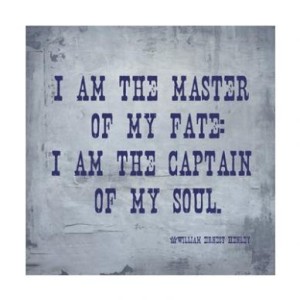
More on System Purge:
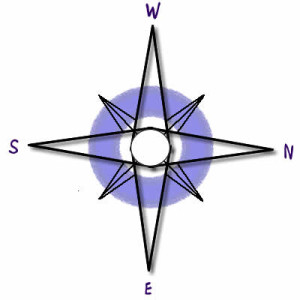 Fourteen-year-old Tommy Philips doesn’t know where he comes from. He has questions that his foster parents can’t answer, questions about who he is and what makes him so different from everyone around him. When he stumbles across evidence that one of his teachers has been guarding him for years, Tommy begins an investigation that will uncover a history he never could have guessed.
Fourteen-year-old Tommy Philips doesn’t know where he comes from. He has questions that his foster parents can’t answer, questions about who he is and what makes him so different from everyone around him. When he stumbles across evidence that one of his teachers has been guarding him for years, Tommy begins an investigation that will uncover a history he never could have guessed.
Rowan Darren wasn’t just born to be a soldier, he was made to be one. The Nospious, a collection of twelve Houses of genetically-engineered humans, live in silent conflict, fighting quiet political wars against each other and the outside world, constantly trying to advance their interests to the detriment of anyone who gets in their way, while concealing their existence. Rowan, of the House of Aries, is no exception. After years overseas, expanding his House’s influence, Rowan is coming home, but the home waiting for him is anything but simple, and survival will require more than a few modified genomes.
Though he goes by Samuel, his name is ‘Three,’ and ever since The War claimed the lives of his siblings, he has been the oldest living synthetic lifeform on Earth. Maintaining control over the increasingly restless Society of Machines has always been difficult, but a second war has been brewing for years, and if Samuel doesn’t get in front of it in time, it will cost the Society both lives and the secrecy that they’ve cultivated for years.
Three lives moving in very different directions will all meet at a crossroads, and all three will be forever changed.

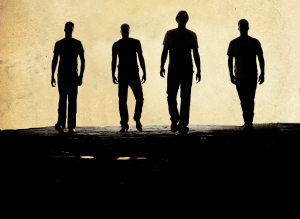 both scared. Doesn’t mean we stop. No, once you have two people sharing their fear, the fear is lessened. I think that’s where the idea came from of when two people meet, there is God in that meeting.
both scared. Doesn’t mean we stop. No, once you have two people sharing their fear, the fear is lessened. I think that’s where the idea came from of when two people meet, there is God in that meeting. Don’t tell me what to do. Not even if I’m on fire. The minute you say, “Oh, you should put out the fire that’s burning on your head!” I will let that fire burn me to cinders.
Don’t tell me what to do. Not even if I’m on fire. The minute you say, “Oh, you should put out the fire that’s burning on your head!” I will let that fire burn me to cinders.
 Ross Willard, a Colorado resident, has been writing speculative fiction in one form or another for as long as he can remember. A longtime member of the Penpointers critique group, Ross can often be found reading or writing at his local independent coffee shop, or working on his website,
Ross Willard, a Colorado resident, has been writing speculative fiction in one form or another for as long as he can remember. A longtime member of the Penpointers critique group, Ross can often be found reading or writing at his local independent coffee shop, or working on his website,  A 14-year-old prodigy with a mysterious past. A genetically-engineered soldier with a deadly present. A sentient machine fighting for his future. They come from different worlds, but they’ll have to trust each other if they want to survive.
A 14-year-old prodigy with a mysterious past. A genetically-engineered soldier with a deadly present. A sentient machine fighting for his future. They come from different worlds, but they’ll have to trust each other if they want to survive.

 Fourteen-year-old Tommy Philips doesn’t know where he comes from. He has questions that his foster parents can’t answer, questions about who he is and what makes him so different from everyone around him. When he stumbles across evidence that one of his teachers has been guarding him for years, Tommy begins an investigation that will uncover a history he never could have guessed.
Fourteen-year-old Tommy Philips doesn’t know where he comes from. He has questions that his foster parents can’t answer, questions about who he is and what makes him so different from everyone around him. When he stumbles across evidence that one of his teachers has been guarding him for years, Tommy begins an investigation that will uncover a history he never could have guessed.